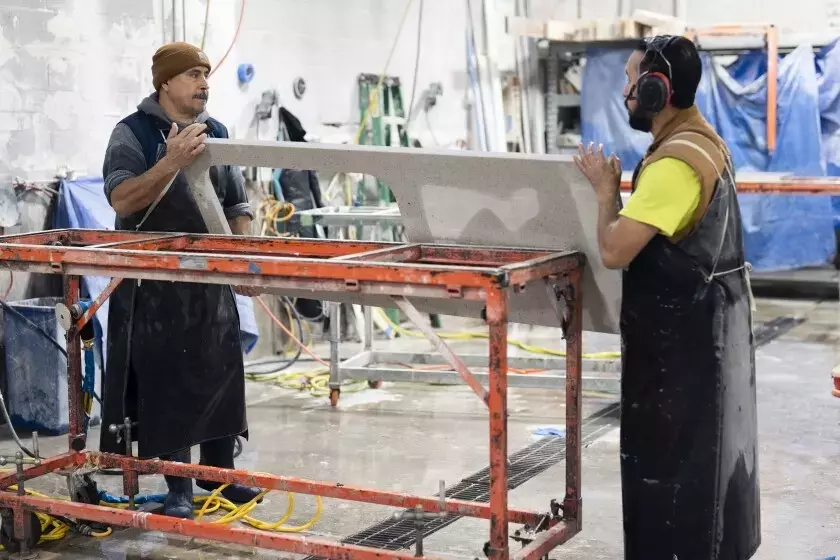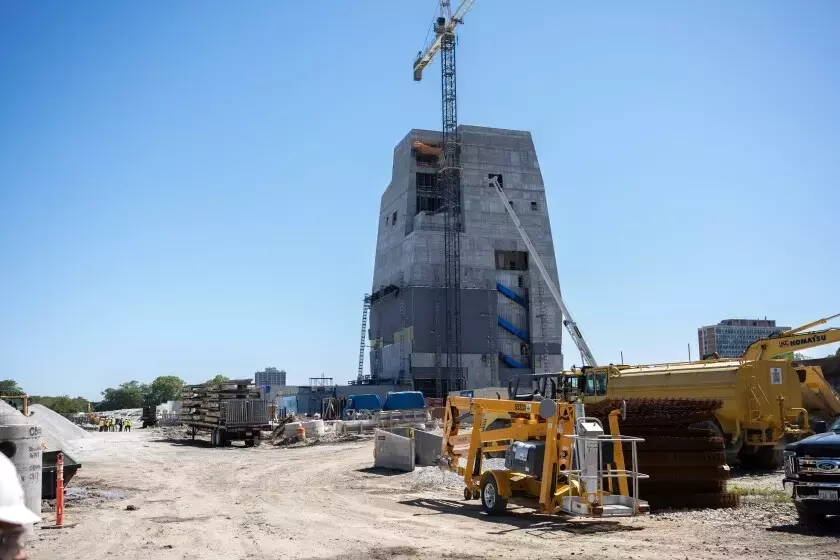




The construction industry in Chicago is bracing for potential disruptions as the incoming administration considers implementing new tariffs on imported materials. Sandya Dandamudi, president of GI Stone, a stone contractor based in West Loop, is proactively exploring alternative suppliers in Brazil to mitigate the impact of these anticipated tariffs. The proposed measures could significantly affect material costs and project timelines, especially with major developments like the Obama Presidential Center and the United Center's 1901 Project on the horizon. Businesses are evaluating their options, including stockpiling materials and seeking new international partnerships, to ensure continuity in a challenging economic environment.
Dandamudi's journey to Brazil represents a broader trend among American businesses that rely heavily on foreign-sourced materials. With the Trump administration's plans to impose higher tariffs on key suppliers such as China, Mexico, and Canada, companies like GI Stone are exploring untapped markets. Dandamudi aims to secure reliable suppliers in Brazil, hoping this South American nation will remain tariff-free. GI Stone specializes in granite, marble, and engineered quartz, with China being a crucial source. However, the uncertainty surrounding future trade policies has prompted Dandamudi to diversify her supply chain.
The implications of these tariffs extend beyond individual businesses. Chicago's construction sector, already grappling with high interest rates and limited crane availability, faces an uncertain future. Tom Cuculich, executive director of Chicagoland Associated General Contractors, notes that even before tariff discussions began, the city had experienced a slowdown in development projects. The potential increase in material costs could further strain the market, potentially leading to higher prices for developers and consumers alike.
While some firms, like Ryan Companies, are adopting a cautious "wait-and-see" approach, others are taking proactive measures. Construction companies are increasingly looking into industrial outdoor storage spaces to stockpile materials before anticipated price hikes. Mike Freitag, executive vice president at NAI Hiffman, reports a surge in demand for such storage facilities over the past three months. This strategy mirrors the early pandemic response when companies prepared for supply chain disruptions by securing essential resources ahead of time.
In addition to immediate cost concerns, the long-term impact on smaller businesses and consumers cannot be overlooked. Pierre-Nicolas Disser, head of consumer products for QIMA, warns that while larger corporations may have the resources to adapt, smaller entities might struggle to absorb increased costs. Consumers could shift towards purchasing from big-box retailers who can offer more competitive pricing. For Dandamudi and others in the construction industry, the hope lies in finding stable, cost-effective suppliers before the full effects of the tariffs take hold.
Despite the challenges, there remains a sense of cautious optimism within the industry. While the immediate future is uncertain, many believe that strategic planning and adaptation will help navigate the changing landscape. Dandamudi's efforts to explore new markets highlight the resilience and ingenuity of businesses in the face of evolving trade policies. As the industry recalibrates, the focus remains on ensuring sustainable growth and maintaining quality despite rising costs.
